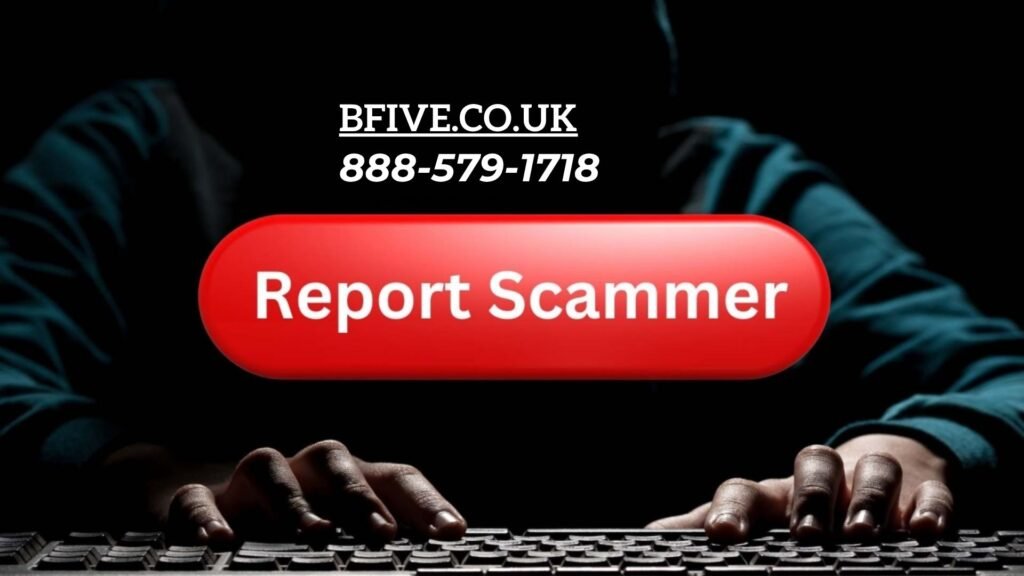Understanding the 888-579-1718 Scam
The 888-579-1718 scam is one of the many phone-based fraudulent schemes that have alarmed consumers across the United States. Victims report receiving calls from this number, often accompanied by threatening messages, fake legal claims, or urgent demands for payment. These scams often prey on fear, confusion, and the natural instinct to protect oneself or loved ones from supposed legal or financial trouble.
What Happens When You Answer the Call
When someone answers a call from 888-579-1718, they’re usually met with one of the following scenarios:
- An automated message stating that there’s an urgent legal matter requiring attention.
- A caller posing as a law enforcement officer, IRS agent, or debt collector.
- A demand for immediate payment to resolve the issue.
- A threat of arrest, lawsuit, or frozen assets if the call is ignored.
These callers sound convincing, use official-sounding terminology, and may even provide fake case numbers or personal information to make their story sound credible.
Who Is Behind These Calls?
While it’s difficult to pinpoint the exact perpetrators, many of these scams originate from overseas call centers using Voice over Internet Protocol (VoIP) technology. This allows them to spoof numbers and appear as if the call is coming from within the United States. Scammers often operate in organized groups, continuously changing their tactics to stay ahead of law enforcement.
Common Tactics Used by the 888-579-1718 Scam
1. Legal Threats and Intimidation
One of the most frightening aspects of this scam is the use of threats of legal action. Victims are told they owe debts or have pending criminal charges. This approach is designed to shock and confuse, pushing the person to act without verifying the facts.
2. Identity Verification Ruse
Scammers ask victims to “verify their identity,” requesting Social Security numbers, bank account details, or credit card numbers. Providing this information opens the door to identity theft, unauthorized charges, or drained bank accounts.
3. Urgency and Pressure
The caller typically insists that the matter is time-sensitive, giving only a few hours or minutes to comply. This tactic is effective because it prevents the target from thinking clearly or seeking advice.
4. Fake Authorities and Caller ID Spoofing
Fraudsters often pose as government officials, using spoofed caller IDs to mimic legitimate organizations. This may include the IRS, FBI, local police departments, or legal firms. The goal is to give their claims an air of legitimacy.
Real Stories From Victims
Susan R. from Texas shared her experience:
“I got a call from 888-579-1718 saying there was a lawsuit filed against me. I panicked. They knew my full name and said if I didn’t pay $2,000 within an hour, police would come to arrest me. I nearly sent the money until my husband told me to hang up and call our attorney.”
James L. from Florida recounted:
“They said I had an unpaid payday loan and that I’d be charged with fraud. They threatened to contact my employer. I was scared out of my mind. I’m glad I searched the number online and found out it was a scam.”
How to Identify and Handle the 888-579-1718 Scam
Don’t Panic
Remain calm. Scammers thrive on emotional manipulation. Taking a moment to collect your thoughts can prevent irreversible mistakes.
Never Share Personal Information
No legitimate agency will call and ask for sensitive personal details over the phone. Do not provide your Social Security number, credit card details, or bank information.
Hang Up Immediately
Once you suspect a scam, end the call. Do not engage further, as scammers are trained to manipulate conversations.
Verify Through Official Channels
If the caller claims to be from a legitimate organization, look up the agency’s real phone number and call them directly. Never use the number provided by the caller.
Report the Incident
Report scam calls to:
- The Federal Trade Commission (FTC) at reportfraud.ftc.gov
- The Better Business Bureau (BBB)
- Your state’s Attorney General’s office
These reports help build cases against scammers and protect others.
Steps to Protect Yourself from Phone Scams
Enable Call Blocking
Use your smartphone’s built-in tools or third-party apps like Hiya, RoboKiller, or Truecaller to block suspicious numbers.
Register on the Do Not Call List
Add your number to the National Do Not Call Registry at donotcall.gov. While it won’t stop scammers entirely, it reduces unwanted calls from legitimate telemarketers.
Educate Yourself and Loved Ones
Make sure your friends, family, and especially elderly relatives are aware of common phone scams. They are often prime targets for fraudsters.
Check Phone Numbers Online
Always Google unfamiliar numbers before calling back. Sites like 800notes.com and WhoCallsMe contain real user reports about scam numbers like 888-579-1718.
Why You Should Never Pay Scammers
Paying a scammer doesn’t resolve the issue—it marks you as a future target. They often share victim information with other fraud groups. Also, once funds are sent via wire transfer, gift cards, or prepaid debit cards, it’s nearly impossible to recover them.
What to Do If You’ve Already Been Scammed
- Contact your bank or credit card company immediately to report unauthorized transactions.
- Place a fraud alert on your credit report through Experian, TransUnion, or Equifax.
- File a report with your local police department to document the incident.
- Change all account passwords and enable two-factor authentication wherever possible.
- Monitor your credit regularly for suspicious activity.
Final Thoughts
The 888-579-1718 scam is a clear example of how criminals exploit trust and fear. But by staying informed, alert, and ready to act, we can protect ourselves and others. Share this information widely—education is the best defense.


1 Comment
Pingback: Warning: Don’t Trust Calls from 888-324-9086 - Financial Technology News | Business News